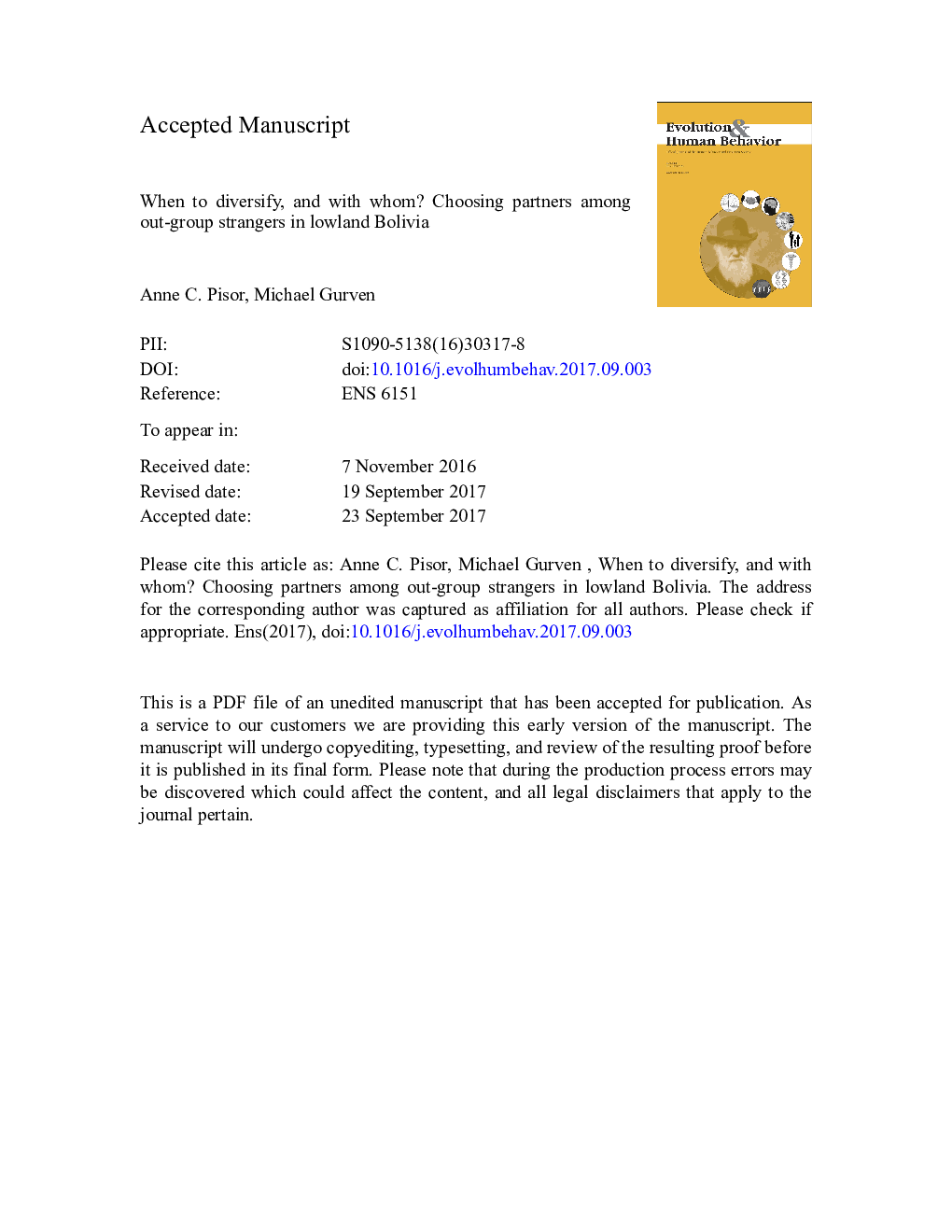| کد مقاله | کد نشریه | سال انتشار | مقاله انگلیسی | نسخه تمام متن |
|---|---|---|---|---|
| 7316352 | 1475509 | 2018 | 42 صفحه PDF | دانلود رایگان |
عنوان انگلیسی مقاله ISI
When to diversify, and with whom? Choosing partners among out-group strangers in lowland Bolivia
ترجمه فارسی عنوان
چه زمانی به تنوع و با چه کسی؟ انتخاب شرکای بین غریبه های خارج از گروه در بولیوی پایین
دانلود مقاله + سفارش ترجمه
دانلود مقاله ISI انگلیسی
رایگان برای ایرانیان
کلمات کلیدی
انتخاب شریک، تماس میان گروهی، بزهکاری، غریبه ها، باغداران، بولیوی،
موضوعات مرتبط
علوم زیستی و بیوفناوری
علوم کشاورزی و بیولوژیک
بوم شناسی، تکامل، رفتار و سامانه شناسی
چکیده انگلیسی
Evidence from the ethnographic and archaeological records reveals that humans often rely on out-group relationships for access to non-local resources and resource buffering. However, little is known about how actors choose out-group cooperative partners. The existing literature suggests that (in-group) partner choice is based on characteristics associated with greater cooperation (e.g., trustworthiness and productivity). Is out-group partner choice based on the same criteria as in-group? Because out-groups may be unique sources of resource access, we suggest that out-group partner choice should track characteristics of both the candidate partner and the partner's group that are associated with benefits for the actor. To assess partner choice, we employed a non-anonymous, one-shot economic game where participants could allocate money towards in-group and out-group strangers. Participants were from three populations of Bolivian horticulturalists (n = 200) that range in their market integration and their mobility, thus capturing variation in potential benefits to out-group cooperation. We find that individual-level qualities of prospective partners, such as wealth and trustworthiness, affect allocation behavior differently for in-group vs out-group prospective partners. While we find no consistent effects of perceived group qualities on a donor's giving to in-group and out-group members, the relevance of out-group market resource access for Tsimane' donors' allocations suggests that, at least when it comes to dividing a limited resource, qualities associated with a group can affect partner preference. Taken together, results provide insight into patterns of intergroup relationship building that have been crucial in the human lineage.
ناشر
Database: Elsevier - ScienceDirect (ساینس دایرکت)
Journal: Evolution and Human Behavior - Volume 39, Issue 1, January 2018, Pages 30-39
Journal: Evolution and Human Behavior - Volume 39, Issue 1, January 2018, Pages 30-39
نویسندگان
Anne C. Pisor, Michael Gurven,
